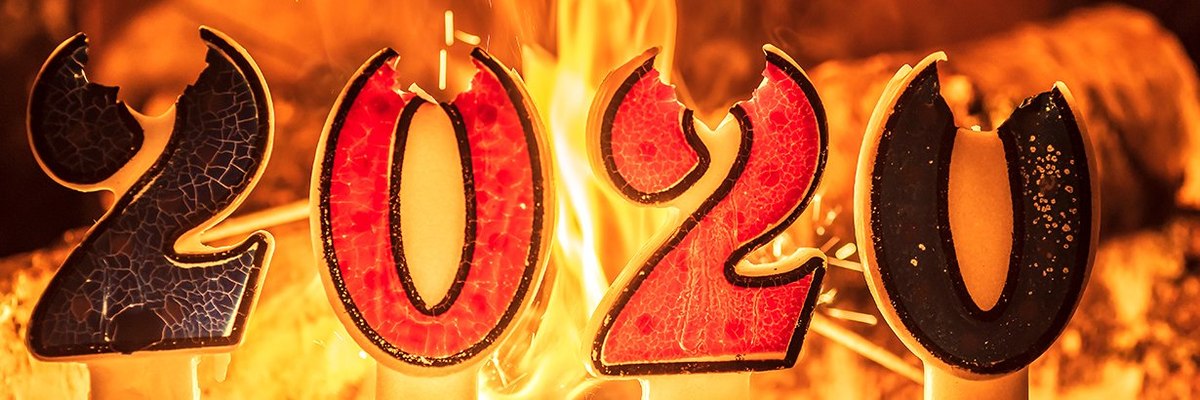For Americans, it was – at least in the history of the Economist/YouGov poll
This year, nearly nine in ten Americans say 2020 was a bad year for the world – with more than half (54%) describing it as a very bad year. The global community was rocked by the coronavirus pandemic, and Americans also experienced a contentious election, racial protests and so much more.
YouGov has been asking Americans to review the year ever since 2009, which, incidentally, comes in second place, with sentiment still shaken by onset of the Great Recession the previous year.
Prior to this year, no more than one in four had ever described the year past as “very bad” for the world.
The “best” years were 2017, 2018 and 2019, with the largest percentages believing it had been a good year for the world (43-48%). The difference in those three years was that most Republicans (two-thirds in 2017 and 83% in 2019) described the prior year as a good one for the world.
But 2020 wasn’t just bad for the world. More than two-thirds of the public say 2020 was a bad year for their own families, though it wasn’t quite as bad a year for them as it was for the world. Fewer than a quarter call 2020 “very bad” for their families (compared with the majority who believe the world had a very bad year).
There were times during the recovery from the Great Recession that more than half the public described their family’s year as bad – but in the last 12 years, it had never reached the level it did this year.
Democrats are more negative than Republicans about how this year went for their families (they are also more concerned about the pandemic). But Republicans agree it was a bad year for their loved ones. Younger adults – those under 30 – are the most positive (though a majority still say has been a bad year for their families). Senior citizens are the most negative.
But it isn’t just the pandemic that upsets Americans in this poll. It is (perhaps even more) the economy. All aspects of it have gotten worse in Americans’ minds: job security, what’s happening in their local areas as well as nationally, government spending and the financial system (although Wall Street appears better to some 30% of people). In addition, the education system is also seem as having gotten worse, as remote learning has become necessary.
Politics has also gotten Americans down. They have mostly said in the past that the preceding year brought more negative politics, and they still do. Last year, two-thirds believe politics had gotten more negative in the last year; this year 65% continue to believe it has gotten even more negative. That figure had been 59% after the 2016 election.
But is that negative politics more interesting? Not really. This year just 23% say politics has become more interesting this year – despite the presidential election and its aftermath. Nearly as many, 20%, claim politics has become less interesting. Democrats, whose presidential candidate, Joe Biden, emerged victorious, were three times as likely to find politics this year more interesting rather than less interesting (though half of them said it was the same as usual). Republicans were evenly divided on this question.
See the toplines and crosstabs from this Economist/YouGov Poll
Methodology: The Economist survey was conducted by YouGov using a nationally representative sample of 1,500 US Adults interviewed online between December 19 - 22, 2020. This sample was weighted according to gender, age, race, and education based on the American Community Survey, conducted by the US Bureau of the Census, as well as 2016 Presidential vote, registration status, geographic region, and news interest. Respondents were selected from YouGov’s opt-in panel to be representative of all US citizens. The margin of error is approximately 3.3% for the overall sample.
Image: Getty







